December 4, 2014 •
House Ethics Committee Issues Holiday Gift Guidance
Today, the U.S. House of Representatives Committee on Ethics released a reminder for its members and staff about the propriety of accepting holiday gifts. Holiday Guidance on the Gift Rule, an eight-page memorandum on House Rule 25, points out some […]
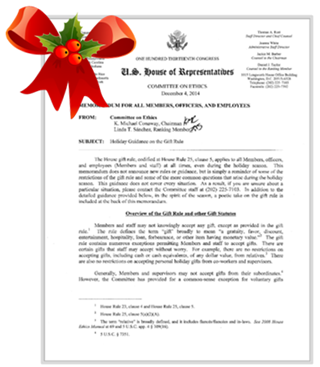 Today, the U.S. House of Representatives Committee on Ethics released a reminder for its members and staff about the propriety of accepting holiday gifts.
Today, the U.S. House of Representatives Committee on Ethics released a reminder for its members and staff about the propriety of accepting holiday gifts.
Holiday Guidance on the Gift Rule, an eight-page memorandum on House Rule 25, points out some of the restrictions, including reminders on how to handle certain types of situations such as attending a holiday reception at a lobbying firm.
In such a situation, attendance is allowed as long as “the food and refreshments are of ‘nominal value’ and offered ‘other than as part of a meal.’”
Should a representative or staff member be offered a gift card or certificate, the memorandum reminds them these items are considered the same as cash; therefore, they cannot be accepted under any gift exception. The communication also reminds members and staff how they must handle unacceptable gifts, how to seek written committee approval in some circumstances, and which financial disclosure requirements may be necessary.
In a seasonal flair, the memorandum ends with a whimsical poem entitled The House Gift Rule: A Rhyme for the Holidays. The poem includes stanzas such as the following:
Gifts worth less than 50 dollars really aren’t scary,
Unless there’s a lobbyist, you can make merry.
But beware! This exception requires you to know
That the donor’s permitted before pulling that bow.
Receptions are gifts but are permitted if they,
Aren’t a meal, regardless if served from a tray.
The exception requires that food value be nominal,
So no caviar, no matter, whether phenomenal.
November 25, 2014 •
Sen. Bernie Sanders Introduced Bill to Create Federal Election Holiday
Sen. Bernie Sanders has introduced a bill creating a federal Election Day. The Democracy Day Act of 2014 designates “the Tuesday next after the first Monday in November in each even-numbered year” as a public holiday. Senate Bill 2918, introduced […]
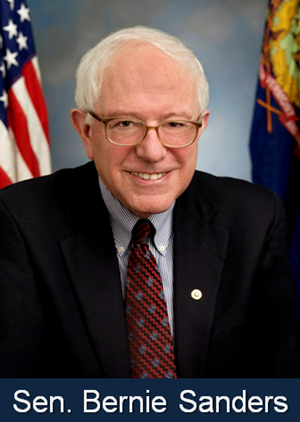 Sen. Bernie Sanders has introduced a bill creating a federal Election Day. The Democracy Day Act of 2014 designates “the Tuesday next after the first Monday in November in each even-numbered year” as a public holiday.
Sen. Bernie Sanders has introduced a bill creating a federal Election Day. The Democracy Day Act of 2014 designates “the Tuesday next after the first Monday in November in each even-numbered year” as a public holiday.
Senate Bill 2918, introduced on November 12, has been referred to the Committee on the Judiciary.
November 17, 2014 •
FINRA Proposed Pay-to-Play Rules
The Financial Industry Regulatory Authority (FINRA), a private, self-regulatory organization for U.S. securities firms, is proposing pay-to-play rules. According to FINRA Regulatory Notice 14-50, posted on November 14, it is requesting comment on the proposed rules, which would regulate the […]
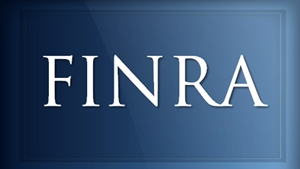 The Financial Industry Regulatory Authority (FINRA), a private, self-regulatory organization for U.S. securities firms, is proposing pay-to-play rules.
The Financial Industry Regulatory Authority (FINRA), a private, self-regulatory organization for U.S. securities firms, is proposing pay-to-play rules.
According to FINRA Regulatory Notice 14-50, posted on November 14, it is requesting comment on the proposed rules, which would regulate the activities of member firms engaging “in distribution or solicitation activities for compensation with government entities on behalf of investment advisers that provide or are seeking to provide investment advisory services to such government entities within two years after a contribution to an official of the government entity is made by the member firm or a covered associate.” The three specific rules for which FINRA is seeking comment are Rule 2271, Rule 2390, and Rule 4580.
October 1, 2014 •
Court Challenge to SEC Pay-to-Play Rules Dismissed by Court
A suit filed by the Republican parties of New York and Tennessee challenging the Securities and Exchange Commission’s (SEC) Pay-to-Play rule has been dismissed by the U.S. District Court for the District of Columbia. The court held it did not […]
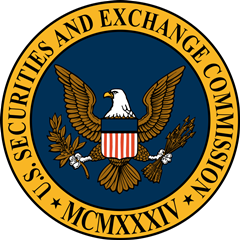 A suit filed by the Republican parties of New York and Tennessee challenging the Securities and Exchange Commission’s (SEC) Pay-to-Play rule has been dismissed by the U.S. District Court for the District of Columbia. The court held it did not have jurisdiction and the proper court to hear the case is the D.C. Circuit Court of Appeals.
A suit filed by the Republican parties of New York and Tennessee challenging the Securities and Exchange Commission’s (SEC) Pay-to-Play rule has been dismissed by the U.S. District Court for the District of Columbia. The court held it did not have jurisdiction and the proper court to hear the case is the D.C. Circuit Court of Appeals.
The plaintiffs alleged SEC Rule 206(4)-5, which imposes restrictions upon investment advisors and their covered associates making contributions to officials of state and local government entities, violates the freedom of speech protections of the First Amendment. The suit also took the position the SEC does not have the authority to regulate campaign contributions.
September 30, 2014 •
Appeals Court Hears Arguments Challenging Ban on Federal Contractors’ Political Contributions
Today, the U.S. District Court of Appeals for the District of Columbia will sit en banc to hear oral arguments challenging the constitutionality of barring contractors from contributing to candidates, parties, and their committees. On November 2, 2012, in Wagner […]
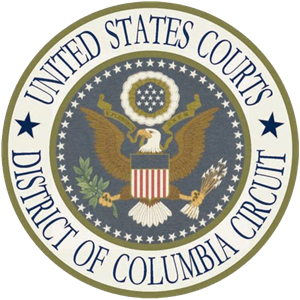 Today, the U.S. District Court of Appeals for the District of Columbia will sit en banc to hear oral arguments challenging the constitutionality of barring contractors from contributing to candidates, parties, and their committees.
Today, the U.S. District Court of Appeals for the District of Columbia will sit en banc to hear oral arguments challenging the constitutionality of barring contractors from contributing to candidates, parties, and their committees.
On November 2, 2012, in Wagner v. Federal Election Committee, a District Court rejected challenges to the constitutionality of section 441c of Title 2 of the U.S. Code, which prohibits any vendors with contracts with the federal government from making political contributions to federal candidates or political parties. The case, initially brought by the ACLU, asked the court to declare the law unconstitutional as applied to individuals who have personal services contracts with federal agencies.
Because federal workers who are not contractors may make federal political contributions, while contractors performing the same work may not, the suit argued section 441c violates both the Equal Protection Clause of the Constitution and the First Amendment. The court found no First Amendment or Equal-Protection violations, noting “the dissimilar roles of contractors and employees, moreover, justify the distinct regulatory schemes that the Government has fashioned.”
August 14, 2014 •
OMB Relaxes Ban on Federal Lobbyists
The Office of Management and Budget issued revised guidance on August 13, 2014, regarding the prohibition against appointing or re-appointing federal lobbyists to serve on advisory committees, boards, and commissions. The revised guidance clarifies the ban only applies to federal […]
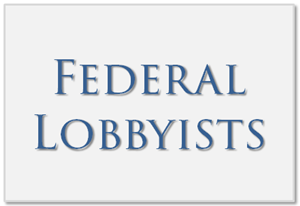 The Office of Management and Budget issued revised guidance on August 13, 2014, regarding the prohibition against appointing or re-appointing federal lobbyists to serve on advisory committees, boards, and commissions.
The Office of Management and Budget issued revised guidance on August 13, 2014, regarding the prohibition against appointing or re-appointing federal lobbyists to serve on advisory committees, boards, and commissions.
The revised guidance clarifies the ban only applies to federal lobbyists serving in their individual capacity. In this situation, individual capacity refers to individuals appointed to committees to exercise their own individual best judgment on behalf of the government.
Federal lobbyists appointed in a representative capacity, meaning they are appointed for the express purpose of providing a committee with the views of a nongovernmental entity, a recognizable group of persons or nongovernmental entities, or a state or local government, are not subject to the ban.
July 22, 2014 •
Presidential Executive Order Prohibits Federal Contractors from Discriminating Against LGBT Employees
On July 21, President Obama signed an executive order prohibiting federal contractors from discriminating against lesbian, gay, bisexual, and transgender (LGBT) employees. The order also prohibits discrimination based on gender identity in federal employment. The White House press release states, […]
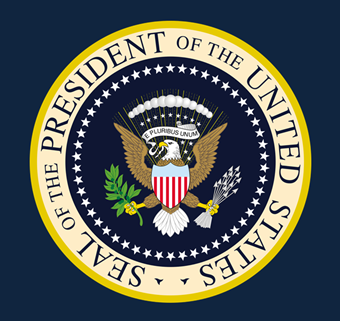 On July 21, President Obama signed an executive order prohibiting federal contractors from discriminating against lesbian, gay, bisexual, and transgender (LGBT) employees. The order also prohibits discrimination based on gender identity in federal employment.
On July 21, President Obama signed an executive order prohibiting federal contractors from discriminating against lesbian, gay, bisexual, and transgender (LGBT) employees. The order also prohibits discrimination based on gender identity in federal employment.
The White House press release states, “No current federal law adequately protects [LGBT] workers from employment discrimination. … At a critical time for our nation’s economy, we need all of our workers to be focused on making the most of their talent, skill, and ingenuity, rather than worrying about losing their job due to discrimination.”
The order amends two prior executive orders from the 1960s, issued by Presidents Johnson and Nixon, prohibiting discrimination based on “race, color, religion, sex, or national origin.”
June 3, 2014 •
Don’t Miss the Senate Panel Hearing on Campaign Finance
You can listen to today’s live broadcast of the U.S. Senate Hearing on campaign finance, “Examining a Constitutional Amendment to Restore Democracy to the American People” on the U.S. Senate Committee on the Judiciary website. Panel I will feature U.S. […]
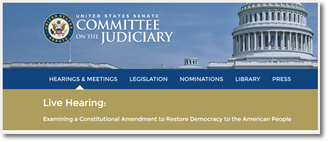 You can listen to today’s live broadcast of the U.S. Senate Hearing on campaign finance, “Examining a Constitutional Amendment to Restore Democracy to the American People” on the U.S. Senate Committee on the Judiciary website.
You can listen to today’s live broadcast of the U.S. Senate Hearing on campaign finance, “Examining a Constitutional Amendment to Restore Democracy to the American People” on the U.S. Senate Committee on the Judiciary website.
Panel I will feature U.S. Senate Majority Leader Harry Reid (D-Nev.) and U.S. Minority Leader Mitch McConnell (R-Ky.). Panel II will feature North Carolina State Senator Floyd B. McKissick, Jr., Floyd Abrams, Partner Cahill Gordon & Reindel LLP, and Jamie Raski, Professor of Law and Director of the Law and Government Program at American University, Washington College of Law.
The streaming broadcast will be available at 10:30 a.m.
May 27, 2014 •
Federal Widely Attended Gathering Gift Ceiling is Now $375
In a May 23 legal advisory to federal designated agency ethics officials, the Office of Government Ethics announced it had raised the widely attended gathering gift exception ceiling for nonsponsor gifts of free attendance from $350 to $375. This revision […]
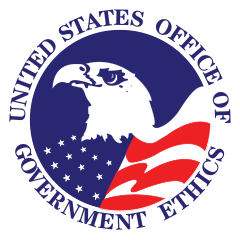 In a May 23 legal advisory to federal designated agency ethics officials, the Office of Government Ethics announced it had raised the widely attended gathering gift exception ceiling for nonsponsor gifts of free attendance from $350 to $375. This revision of 5 C.F.R. § 2635.204(g)(2) became effective May 19, 2014, when it was published in the Federal Register.
In a May 23 legal advisory to federal designated agency ethics officials, the Office of Government Ethics announced it had raised the widely attended gathering gift exception ceiling for nonsponsor gifts of free attendance from $350 to $375. This revision of 5 C.F.R. § 2635.204(g)(2) became effective May 19, 2014, when it was published in the Federal Register.
May 23, 2014 •
GAO Issues Report on Debarment Programs
On May 21, the U.S Government Accountability Office (GAO) issued a report describing the steps taken to improve the suspension and debarment programs of some agencies with federal contracts and grants. The report, prepared for the House of Representatives Committee […]
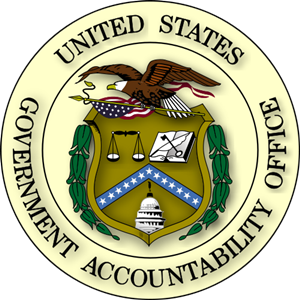 On May 21, the U.S Government Accountability Office (GAO) issued a report describing the steps taken to improve the suspension and debarment programs of some agencies with federal contracts and grants. The report, prepared for the House of Representatives Committee on Oversight and Government Reform, found “the number of suspension and debarment actions government-wide has more than doubled from 1,836 in fiscal year 2009 to 4,812 in fiscal year 2013.”
On May 21, the U.S Government Accountability Office (GAO) issued a report describing the steps taken to improve the suspension and debarment programs of some agencies with federal contracts and grants. The report, prepared for the House of Representatives Committee on Oversight and Government Reform, found “the number of suspension and debarment actions government-wide has more than doubled from 1,836 in fiscal year 2009 to 4,812 in fiscal year 2013.”
In 2011, the GAO had recommended strengthening federal agency suspension programs by implementing “dedicated staff, detailed policies and procedures, and an active referral process.” The six agencies reviewed for the report had all carried out some of the previous recommendations. The GAO did not make any new recommendations in its report. The report can be found here.
Today U.S. Sen. Patrick Leahy announced the Senate Judiciary Committee will hold a hearing related to campaign finance next month. On June 3, the full committee will focus on Senate Joint Resolution 19, a constitutional amendment granting Congress and the […]
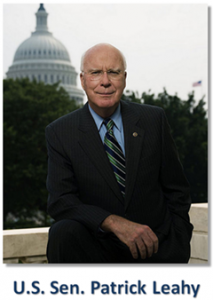
Today U.S. Sen. Patrick Leahy announced the Senate Judiciary Committee will hold a hearing related to campaign finance next month.
On June 3, the full committee will focus on Senate Joint Resolution 19, a constitutional amendment granting Congress and the states power to regulate money in political elections.
Leahy argues in his press release, “The hearing comes on the heels of the Court’s McCutcheon v. Federal Election Commission decision, in which five justices reversed long-standing precedent and declared aggregate limits on campaign contributions in elections to be unconstitutional in violation of the First Amendment. Coupled with the destructive Citizens United decision of 2010, … Congress must respond.”
SJR 19 was introduced by Sen. Tom Udall and has 40 cosponsors.
Yesterday President Barack Obama signed an executive order to prevent federal vendors from prohibiting their employees from inquiring about, disclosing, or discussing their compensation with fellow workers. The April 8 order, titled “Non-Retaliation for Disclosure of Compensation Information,” is intended […]
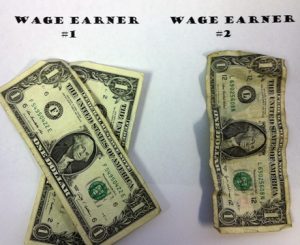
Yesterday President Barack Obama signed an executive order to prevent federal vendors from prohibiting their employees from inquiring about, disclosing, or discussing their compensation with fellow workers.
The April 8 order, titled “Non-Retaliation for Disclosure of Compensation Information,” is intended to discover, remediate, and help eliminate compensation discrimination.
The president’s order justified this prohibition by stating, “Federal contractors that employ [compensation discrimination] are subject to enforcement action, increasing the risk of disruption, delay, and increased expense in Federal contracting. Compensation discrimination also can lead to labor disputes that are burdensome and costly.”
The order takes effect immediately and will apply to new contracts entered into once the Department of Labor creates rules promulgating the order.
On March 13, a bill was introduced in the U.S. House of Representatives requiring increased disclosure from lobbyists and public officials. U.S. Rep. Mike Quigley introduced the Transparency in Government Act. The act, House Resolution 4245, makes several changes to […]
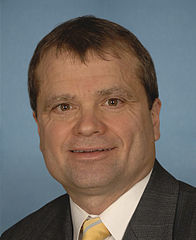
On March 13, a bill was introduced in the U.S. House of Representatives requiring increased disclosure from lobbyists and public officials. U.S. Rep. Mike Quigley introduced the Transparency in Government Act.
The act, House Resolution 4245, makes several changes to the current Lobbyist Disclosure Act (LDA), including:
- Establishing the Lobbyist Disclosure Enhancement Act;
- Removing references to the IRS definition of lobbying, leaving only the LDA definition of lobbying;
- Changing the requirement for lobbyist registration by removing the current 20 percent work time threshold; and
- Requiring:
- Lobbyists to report political contributions quarterly rather than semiannually;
- Lobbyists to complete ethics training within six months of being hired and once every five years thereafter;
- Lobbyists to register within 10 days, rather than 45 days, of making a lobbying contact;
- Organizations that hire a lobbyist intending to make more than one lobbying contact to register; and
- The clerk of the House and the secretary of the Senate to develop a system that assigns an identification number to each lobbyist.
The bill also amends the Freedom of Information Act and makes other changes regarding disclosure and transparency in federal contracting and the three branches of federal government.
In his press release, Quigley states, “The Transparency in Government Act shines a light on every branch of the federal government, strengthening our democracy and promoting an efficient, effective and open government.”
Photo of U.S. Rep. Mike Quigley courtesy of the U.S. House of Representatives website on Wikimedia Commons.
February 13, 2014 •
Obama Issues Executive Order Establishing Minimum Wage for Contractors
On February 12, President Barack Obama issued an executive order establishing a minimum wage for federal contractors. Effective January 1, 2015, contractors and subcontractors for the federal government must pay employees a minimum of $10.10 an hour or $4.90 an […]
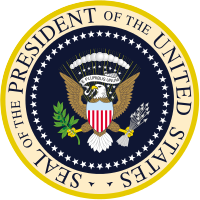
On February 12, President Barack Obama issued an executive order establishing a minimum wage for federal contractors.
Effective January 1, 2015, contractors and subcontractors for the federal government must pay employees a minimum of $10.10 an hour or $4.90 an hour for employees who are tipped. The wages will be annually adjusted according to the consumer price index.
The order applies only to new contracts starting in 2015.
State and Federal Communications, Inc. provides research and consulting services for government relations professionals on lobbying laws, procurement lobbying laws, political contribution laws in the United States and Canada. Learn more by visiting stateandfed.com.

